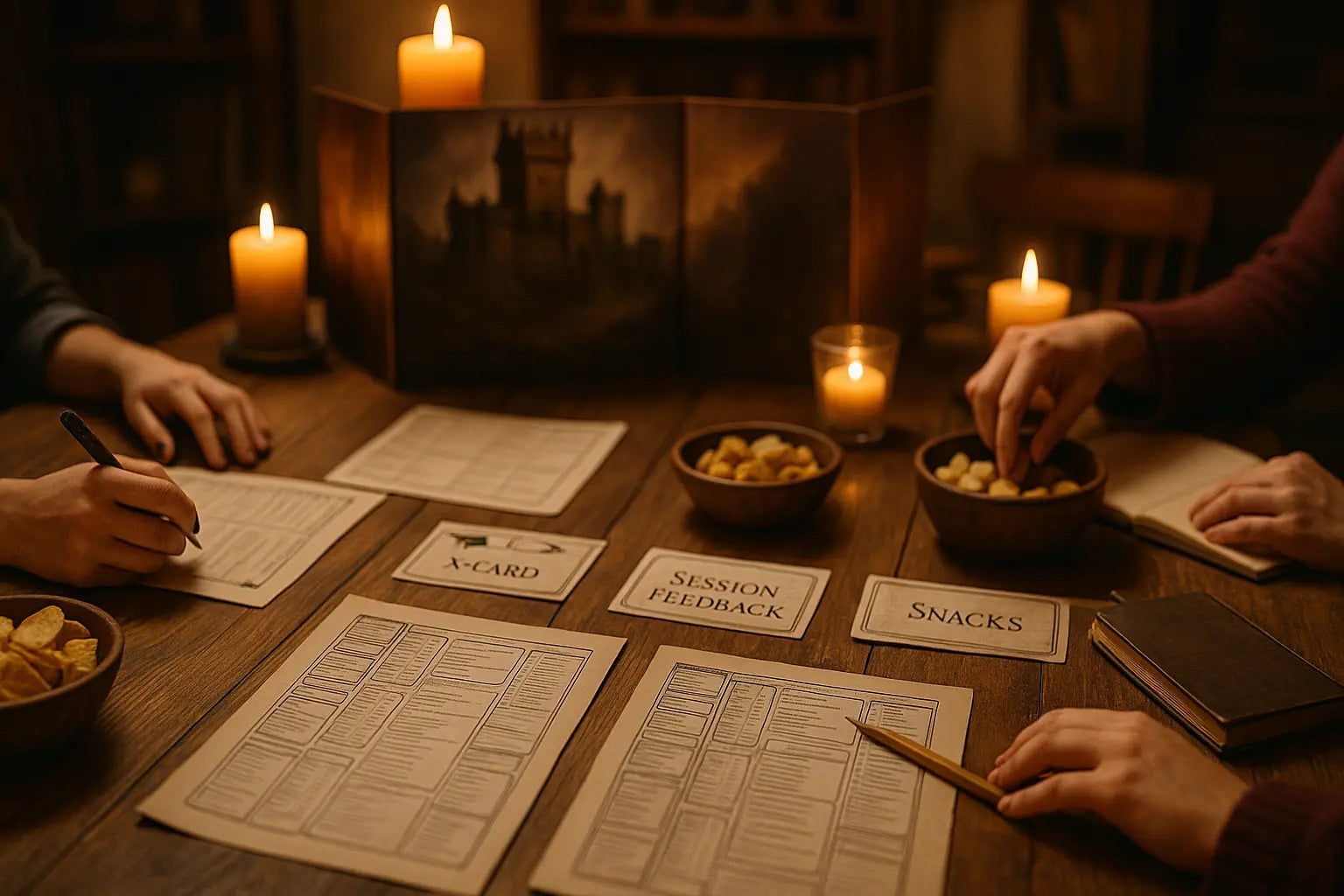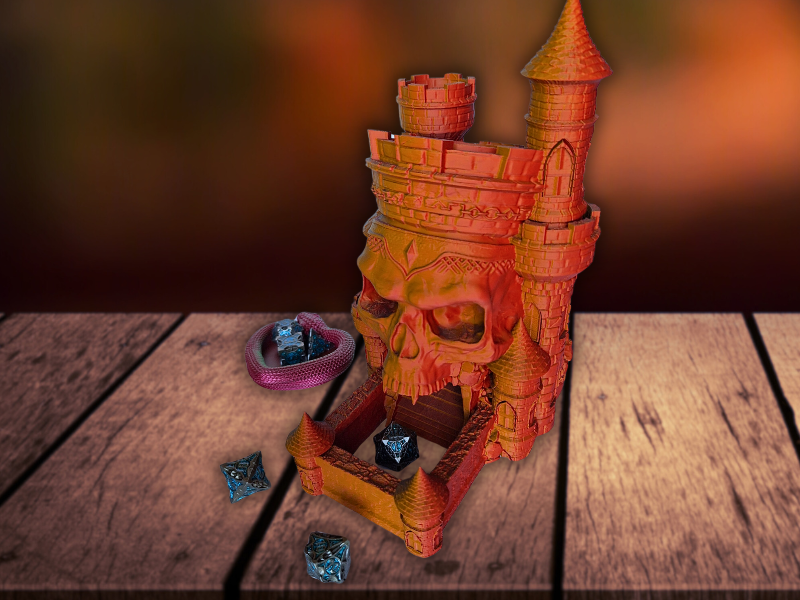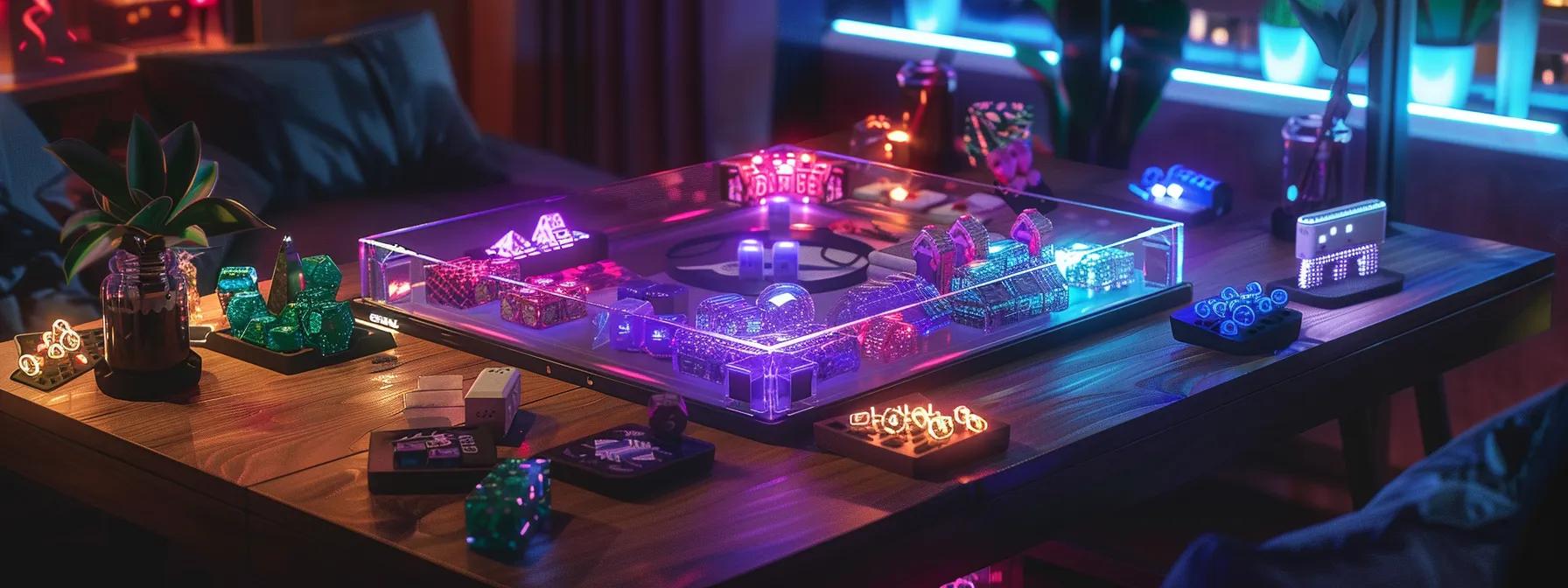
Session Zero Checklist: How to Start Your Dungeons & Dragons Campaign Strong
Starting a new D&D campaign always sparks that familiar excitement. The map’s blank, the dice are ready, and somewhere in the future, a dragon's already plotting your party’s downfall. But before anyone rolls for initiative, it's smart to gather the party for one important step: Session Zero.
A session zero isn't mandatory, but it can smooth out a lot of bumps before you even hit initiative. Whether you're a brand new DM or an old-school dungeon master looking to tighten up your prep, a well-run session 0 can make your new campaign feel a lot more cohesive.
Session Zero: Pros and Cons
Pros:
-
Establishes clear expectations for the campaign
-
Helps avoid misunderstandings about tone, playstyle, and house rules
-
Gives players time to build character connections and party balance
-
Creates space for safety tools and guidelines
-
Eases new players into roleplaying games without overwhelming them
Cons:
-
Takes extra time before "real" adventuring starts
-
Can sometimes feel unnecessary for short campaigns or one-shots
-
Risk of over-planning and "analysis paralysis" if not kept casual
Bottom line: you can skip session zero—but for any full-length Dungeons & Dragons campaign or a group of new players, it’s a party-saving move.
Planning a long-haul campaign? Bring the same focus to your tabletop setup. Fabletop’s dice towers and storage tomes make every session feel polished, right from session zero.
Why Session Zero Matters
The goal of a session zero is simple: establish expectations, build player buy-in, and make sure everyone's ready to have fun together.
When you run a session zero in D&D, you help:
- Avoid major conflicts down the line (because "Wait, we were allowed to be evil?" conversations at level 10 are a little late).
-
Set the tone and type of game (gritty survival vs. epic heroics)
-
Give everyone space to create characters that fit together
-
Get a feel for everyone's level of experience (brand new players need different pacing than veterans)
Think of it as leveling up your party before you start facing down kobolds or solving puzzles in ancient ruins.
Session Zero Checklist
Here's a simple checklist to keep your session 0 on track:
1. Introductions
-
Player introductions (including pronouns)
-
Quick "fun fact" icebreakers (favorite spell, RPG moment, etc.)
2. Game Expectations
-
Type of game (serious, silly, political, exploration-focused)
-
Setting basics (Forgotten Realms? Homebrew world?)
-
Tone and themes (no surprises later!)
3. Safety Tools
- Talk about tools like the X-Card or Lines and Veils, and encourage players to speak up if they're uncomfortable.
-
Discuss player comfort zones regarding romance, flirting, and character relationships
4. House Rules
-
Any homebrew rules, magic items changes, or tweaks to RAW vs. RAI
-
How you'll handle fudging the dice, if at all
5. Character Generation
-
Ability scores method (point buy, standard array, or roll)
-
Starting level (Level 1? 3? Different rules for multiclassing?)
-
Character backstories: how much, how detailed?
-
Character connections (at least one other character they know)
6. Logistics
-
Session start time and expected game time
-
Communication methods between sessions
-
Tools you're using (D&D Beyond, Roll20, Fabletop accessories)
7. First Session Teasers
-
Drop a couple "hooks" about the first session
-
Ask simple questions to tie players' characters to the starting adventure
Print this session zero checklist, jot some notes, and you'll be ready to start playing without waffling when the first session hits!
While you set the foundation for your game, build a table that inspires it too. Fabletop’s dice towers and dice vaults add a sense of adventure to every roll.
Safety Tools and Guidelines
Even in a dungeon full of traps and monsters, the real priority is player trust. A few common safety tools you should know about for your session zero:
-
X-Card: Players can tap a card to signal they want to fast-forward without explaining why.
-
Lines and Veils: Agree on content that's "off-limits" or "fade to black."
-
Session Feedback: Build in a way for players to check in after each game session.
-
Romance and Boundaries: Ask players if they're comfortable with in-game romance or flirtation. Some players may not want character relationships that get romantic or personal, and that's totally valid. It's better to know upfront.
Trust between players and dungeon masters makes the whole campaign better. Players expect a space where they can roleplay without real-world stress bleeding in.
Character Creation Tips for a New Campaign
Character creation during a session zero is a team sport. Here's how to keep it smooth:
-
Character Concepts First: Before stats, talk about character concepts. Who they are, not just what they do.
-
Party Balance: Not "perfect balance," but a party where everyone gets some spotlight time.
-
Ties Between Characters: Encourage players to create characters together or link backstories.
-
Homebrew and Magic Items: If you allow it, be super clear about what's fair game at character generation.
-
New Player Support: If you have new players, suggest starting with simpler classes like Fighter or Paladin at 1st level to keep it friendly.
Nothing locks a group together faster than starting off with character knowledge that's in-world, not just player knowledge from reading each other's character sheets.
Character creation should feel special. Store your players’ new heroes in style with dice storage tomes and mini holders from Fabletop - made for players who love the details.
Wrapping Up Your Session Zero
By the end of session 0, everyone should feel excited, informed, and ready for session 1. Even a brand new DM can run a session zero that sets up a dragons campaign worthy of legends.
Give space for final questions, recap any "homework" like finishing character sheets, and remind everyone when the first game session is.
You might even want to set up a "group inventory" of starting supplies or lightly talk about how magic items will be introduced early on. Small things like that build immersion from the jump.
Pro Tip: End of session 0 is a great time to ask, "Anything you're especially excited (or worried) about for this new dungeons & dragons campaign?"
If you're gearing up for a new campaign, a few smart upgrades—like a dice tower, a DM screen, or a dice storage tome—can help your table feel more immersive and keep the focus on the story. Fabletop's shop has everything you need to start strong and stay inspired.
Happy gaming, and may your session zeros be smooth, your dungeons be tricky, and your dragons be epic!



